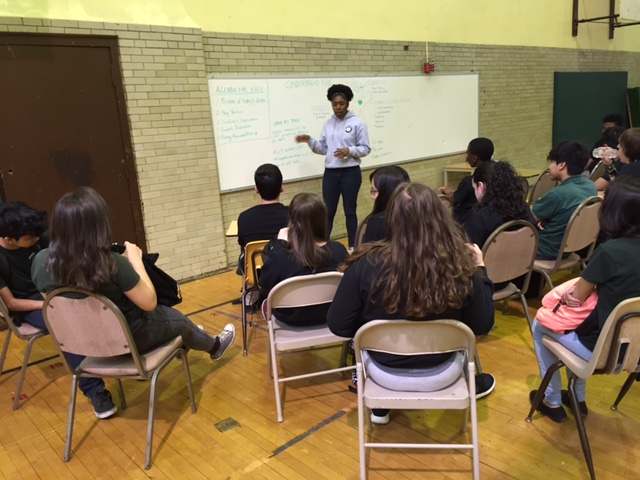The Age Factor

This post is written by Lauren Prince.
Lauren is a Health Promoter at Heartland Health Centers - Senn/Roosevelt.
Whether walking through the halls, coming from a meeting with an assistant principal, or traveling to the lunchroom to do outreach, I can recall numerous times where I have been mistaken as a high school student at my host sites. Although I have always been told that a youthful appearance is envied, I was a bit frustrated, especially since it is culturally understood that lack of respect accompanies lack of age. So, I caught myself putting on blush certain days or dressing more professionally; yet nothing could stop people from associating my youthful appearance with that of a minor. After interacting with students regularly, however, I realized that my age creates a variable of trust and openness with the population I serve. I refer to this beneficial phenomenon as the "age factor".

One of my favorite examples of this was during a sexual health class about pregnancy prevention and contraceptive use. As we began to review the steps to properly use a male condom, a student volunteered to write down the first step on the board:'ask yo shawty". I tried to compose myself and contain my laughter since I had not heard the word'shawty" used in reference to a romantic partner since 2007. I knew he was referring to'receiving consent from your partner to have sex". Initially, I was going to make him erase his statement and remind the class to refrain from using slang for the rest of the lesson; however, I realized that the best thing I could do was to make a connection between his slang and the correct phrase.
While I always prefer to set boundaries and encourage students to use appropriate language, I still take into consideration that sometimes teens learn best when they are unfiltered and given some freedom. Because of my age, I am able to make cultural connections which allow me to be flexible when it comes to these situations. This near-peer relationship plays a large role in helping them access the services in the clinic and develop health literacy skills needed for adulthood.
I serve a pivotal part in creating an environment where students feel comfortable opening up about sensitive topics of health, while some of the most experienced teachers may have trouble discussing these topics due to a lack of empathy caused by cultural age gaps. The "age factor" continues to influence my approach to service activities, like keeping my cultural awareness of adolescents "on fleek".